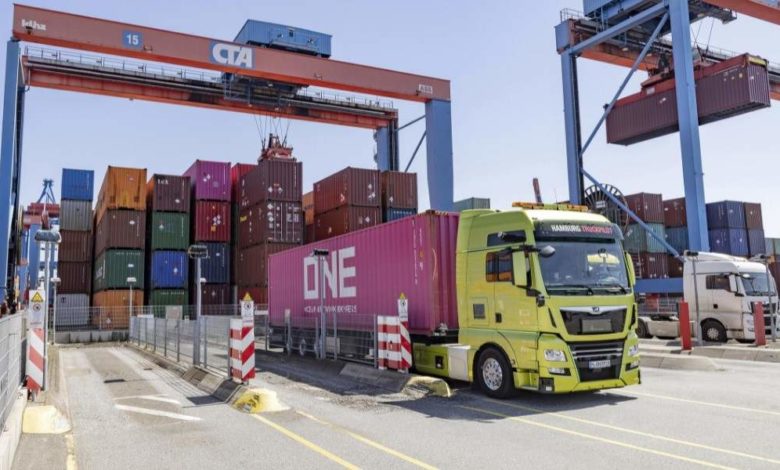Germans put theory into practice with autonomous truck pilot

Hamburger Hafen und Logistik (HHLA) and vehicle maker MAN Truck & Bus have set an important milestone for the use of autonomous trucks in port terminals with the completion of the Hamburg TruckPilot project. The three-year project, which was part of the strategic mobility partnership between the City of Hamburg and Volkswagen, included the development and practical testing of an autonomous truck in container handling at the HHLA Container Terminal Altenwerder (CTA).
Specifically, during the practical trips, the logistics partner, Spedition Jakob Weets, first transported 40-foot containers controlled by a driver on behalf of Volkswagen Group Logistics to the CTA terminal in the Port of Hamburg.
Project partners reported that while in the port, the truck drove autonomously across the terminal area and moved smoothly in mixed traffic with other road users. It drove to its destination in the block storage lane and also manoeuvred itself backwards with high precision into the parking position. After container handling, the return journey to the check gate was just as autonomous, and beyond the terminal grounds, the driver of the Jakob Weets haulage company once again took full command.
The aim is to have self-driving trucks ready for series production from 2030
“Pilot projects like Hamburg TruckPilot prove that the use of self-driving trucks is technologically feasible and can be efficiently integrated into logistics processes. Autonomous driving will be a game changer in transportation. In close cooperation with customers and partners, we are testing practical automation solutions with the aim of getting self-driving trucks ready for series production from 2030,” said Frederik Zohm, MAN board member for research and development.
Likewise, with a view to autonomous driving between different logistics hubs in hub-to-hub traffic, the partners have already collected valuable data on the manual feeder trips on the A7 between the Weets Container Terminal Soltau and the port area 70 km away. HHLA believes that such practical tests, which are always accompanied by safety drivers, will also be possible outside closed areas thanks to the law on autonomous driving in Germany. In July 2021, Germany became the first country ever to pass a law on autonomous driving. This regulates and generally permits the use of autonomous vehicles in defined operational areas, such as traffic between logistics terminals.
“Autonomous trucks have the potential to make freight transport more efficient, cost-effective, reliable, sustainable and, above all, safer. For Container Logistics 4.0 and Industry 4.0, self-driving trucks represent an important element. They are also a solution to the driver shortage that is increasingly causing problems for many transport companies,” HHLA said.
